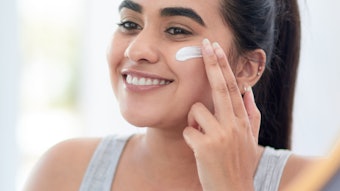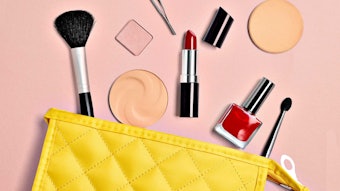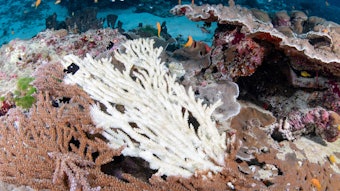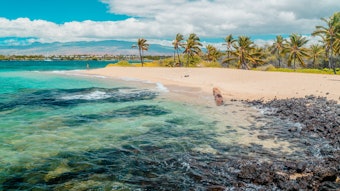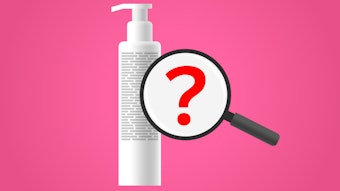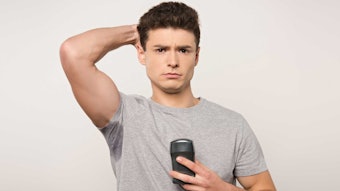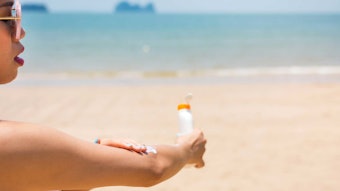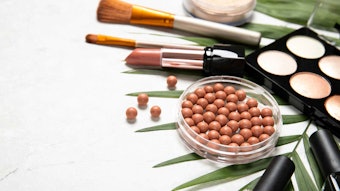
The cosmetics and personal care industry is currently navigating a complex landscape of legal challenges and regulatory reforms ranging from SPF labeling discrepancies and lead content, to UV filter and CMR bans, microbead product recalls and more. Following is an overview of the latest developments.
SPF Discrepancies: L'Oréal, Sun Bum and Edgewell Sunscreens
Following our recent report on Australia's sunscreen labeling crisis, where 16 in 20 products were found to underperform in terms of labeled vs. tested SPF values, several new lawsuits have emerged in the U.S. alleging the same — sunscreens from major brands not living up to their claimed SPF values.
L’Oréal's La Roche-Posay Anthelios Melt-in-Milk Sunscreen, SPF 60
According to a Nov. 6, 2025, Top Class Actions report, a recent class action lawsuit filed in California alleges L’Oréal misrepresented the SPF protection of its La Roche-Posay Anthelios Melt-in-Milk Sunscreen. Per the source, independent testing revealed the product provides a significantly lower SPF value than the advertised SPF 60. Consumers claim they were misled into paying premium prices for inadequate sun protection.
According to the official court filing, in February 2025, the plaintiff’s counsel purchased the product, which was submitted to a qualified laboratory for testing. The lab performed a clinical evaluation of static sunscreen efficacy with the sun protection factor (SPF) assay and calculation of the label SPF following the U.S. Food and Drug (FDA) testing methods. Results allegedly revealed the product did not provide SPF 60 protection, but rather SPF 34 protection. The plaintiff has demanded a jury trial.
Sun Bum SPF 50 Mineral Sunscreen Lotion
Sun Bum LLC has also been accused of overstating the SPF protection of its mineral sunscreen lotion. Two consumers filed class action suits in California against the company, Top Class Actions reported, alleging independent testing showed the product offered protection far below the advertised SPF 50. An amended complaint was filed on October 16 demanding a jury trial.
Similarly to the La Roche-Posay case, the court filing noted the plaintiff's counsel purchased the product and had it independently tested by a reputable lab per the FDA's testing methods. The result revealed the product only provided an SPF of 17.
Edgewell's Hawaiian Tropic Everyday Active SPF 50 Sport Sunscreen Lotion
Finally, on October 29, a class action was filed in Connecticut against Edgewell Personal Care Brands LLC, alleging that its Hawaiian Tropic Everyday Active SPF 50 Sport Sunscreen Lotion only provides SPF 20 protection. Again, the plaintiffs' counsel purchased and submitted the product to a reputable and qualified laboratory for testing that, following FDA guidelines, yielded the SPF 20 result.
Lead Levels in Colgate's Hello Kids Toothpaste
Colgate is facing a lawsuit over its Hello Kids toothpaste, Top Class Actions reported on November 7, which allegedly contains unsafe levels of lead. The plaintiffs argue the product's labeling misleads consumers into believing it is safe for children, despite the health risks associated with lead exposure.
"The amount of lead in the products far exceeds any amount that would be considered safe for children," the California court document claims. "[I]ndeed, many pediatricians and toxicologists agree that no level of lead exposure is safe for children."
The plaintiffs' counsel commissioned testing of the defendant's products by an independent accredited lab. Using inductively coupled plasma – mass spectrometry (ICP-MS) to test for heavy metals, results indicated levels ranging from 268 ppb to 658 ppb, depending on the flavor.
The complaint conceded that while there is no specific FDA guidance or limit for lead in children’s toothpaste, the amount of lead present "far exceeds relevant FDA guidance [that] sets a limit of 100 ppb of lead that can be present in candy that is likely to be consumed frequently by small children."
A jury trial was demanded.
Global Cosmetic Ingredient Bans, Recalls, Crackdowns and Regulatory Updates
On the regulatory front, the UV filter 4-methylbenzylidene camphor (4-MBC), 16 carcinogenic, mutagenic and reprotoxic chemicals (CMRs), microbeads, formaldehyde-releasing substances and unapproved botulinum toxin products have made recent headlines, along with an update to Canada's cosmetics registration process.
UK Cosmetic Ingredient Restrictions, Proposed Ban
According to a report by the consulting firm CIRS Group, on October 31, the UK government proposed banning 4-MBC and 16 CMR substances in cosmetics due to safety concerns.
More specifically, legislators emphasized that 4-MBC lacked a robust genotoxicity and reproductive/developmental toxicity package. As such, considering concerns over its potential endocrine disruption properties, the UK intends to prohibit its use. The transitional provision prohibits products containing the ingredient from being placed on the market in England, Wales and Scotland as of July 15, 2026; such products cannot be made available in these regions as of Jan. 15, 2027.
Regarding the 16 CMR substances, classified as CMR category 1B or 2 in Annex II of the Regulation (EC) No. 1223/2009, these substances will also be prohibited for use in cosmetic products. See the CIR report for the complete list.
Additionally, labeling requirements for formaldehyde-releasing substances will be tightened. Members of the Scientific Advisory Group of Chemical Safety of Non-food and Non-medicinal Consumer Products (SAG-GS) agreed that a threshold of labelling of formaldehyde-releasing preservatives of 10 mg/kg (10 ppm) or 0.001% would be appropriate to protect consumers based on current scientific evidence when using leave-on or rinse-off products.
Australia’s Microbead Ban, Product Recalls
SBS News reported on November 4 that in New South Wales (NSW), several popular Australian skin care brands containing banned microbeads were ordered to withdraw products from the market. Per the source, despite state-level bans, the lack of federal regulation allows these products to remain available in other parts of Australia.
Rinse-off microbeads are currently banned in NSW, the Australian Capital Territory (ACT), Western Australia (WA) and Queensland (QLD), per SBS News. The source adds that the Northern Territory has also proposed banning rinse-off microplastic products, to be implemented in 2025.
DailyMail noted that the NSW Environmental Protection Agency sent notices to the six businesses after testing revealed the products were using microbeads or microscopic plastic particles. The six companies included:
- Aesthetics Skincare Pty Ltd. — Aesthetics Bio Fermented Triple Action Scrub;
- Coles Group Ltd. — KOi For Men Cleansing Face Scrub Oat & Desert Lime;
- Frostbland Pty Ltd. — Alya Skin Pomegranate Exfoliator Facial Scrub and Exfoliating Sorbet;
- JMSR Australia Pty Ltd. — Jan Marini Bioglycolic Resurfacing Body Scrub and Jan Marini Cranberry Orange Exfoliator;
- McPherson’s Consumer Products Pty Ltd. — Dr. LeWinn’s Essentials Gentle Exfoliant Weekly Facial Polishing Gel; and
- Natio Pty Ltd. — Natio Men’s Purifying Face Scrub and Natio Ageless Skin Renewal Exfoliator.
FDA Crackdown on Unapproved Botulinum Toxin Products
The FDA has issued 18 warning letters to web-based businesses in multiple countries for selling unapproved botulinum toxin (Botox) products, according to a November 5 FDA news release; see the FDA website for the complete list of companies.
"The agency is aware of adverse events associated with unapproved and misbranded botulinum toxin products, including botulism symptoms," the FDA wrote.
The source The Partnership for Safe Medicines added that unregulated versions of the injectable have been linked to cases of botulism in the U.S., the United Kingdom and Australia since April 2024.
Health Canada Updates Cosmetic Notification Form
Finally, Health Canada announced updates to its Cosmetic Notification Form. Changes include the following.
Section 4 – Contact Information:
- Users can now prepopulate contact fields using previously entered details by selecting from a drop-down list.
Section 5 – Ingredients:
- The field "Other Chemical Name" is now renamed to "If no INCI name is available, the Chemical Name."
- A new checkbox, "Fragrance Allergen," has been added to indicate the presence of fragrance allergens above the disclosure threshold.
- An error message will appear if required labels are not provided for products with certain ingredients (e.g., hair dyes with p-phenylenediamine). Labels must be submitted for cosmetics with avoidable hazards, as per the Cosmetic Regulations.
Guide Revision:
- The Guide for Cosmetic Notifications has been updated to reflect these changes.
Reminders:
- Submission of the form or issuance of a cosmetic number does not imply Health Canada’s approval for sale or compliance with regulations.
- Manufacturers and importers are responsible for ensuring compliance with the Food and Drugs Act and Cosmetic Regulations.
Industry Implications
These developments highlight the increasing scrutiny on product safety, accurate labeling and environmental impact in the cosmetics industry. Companies must adapt to evolving regulations and consumer expectations to maintain trust and compliance.

